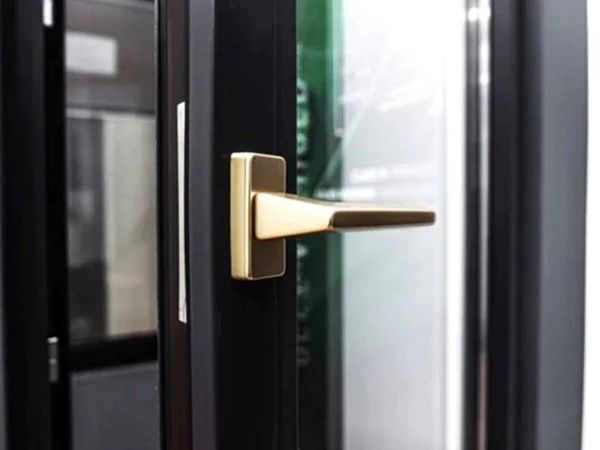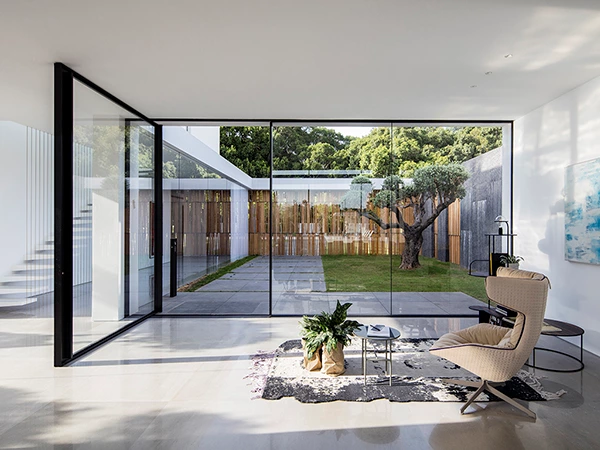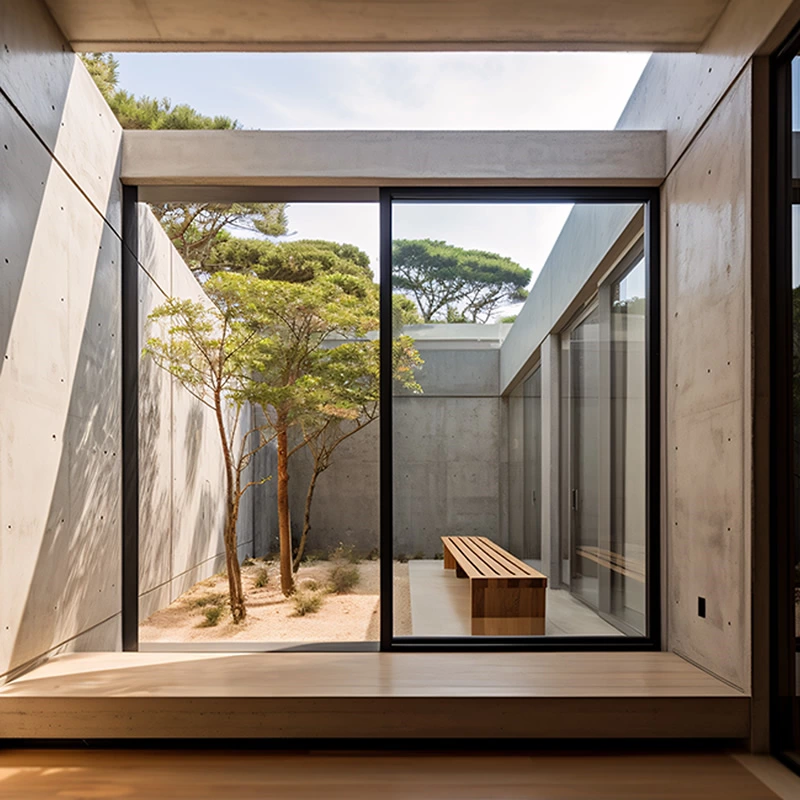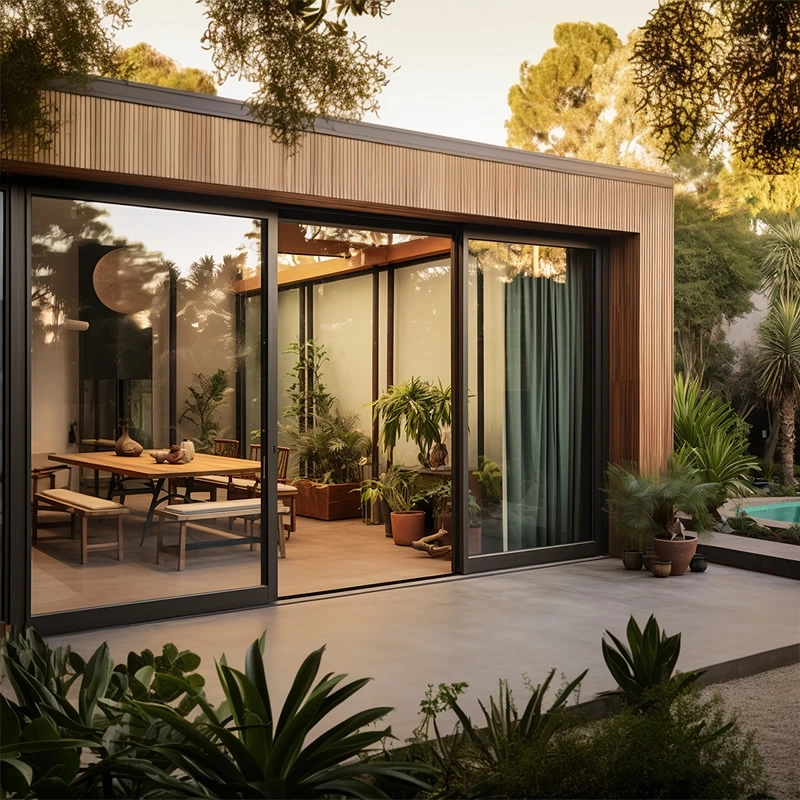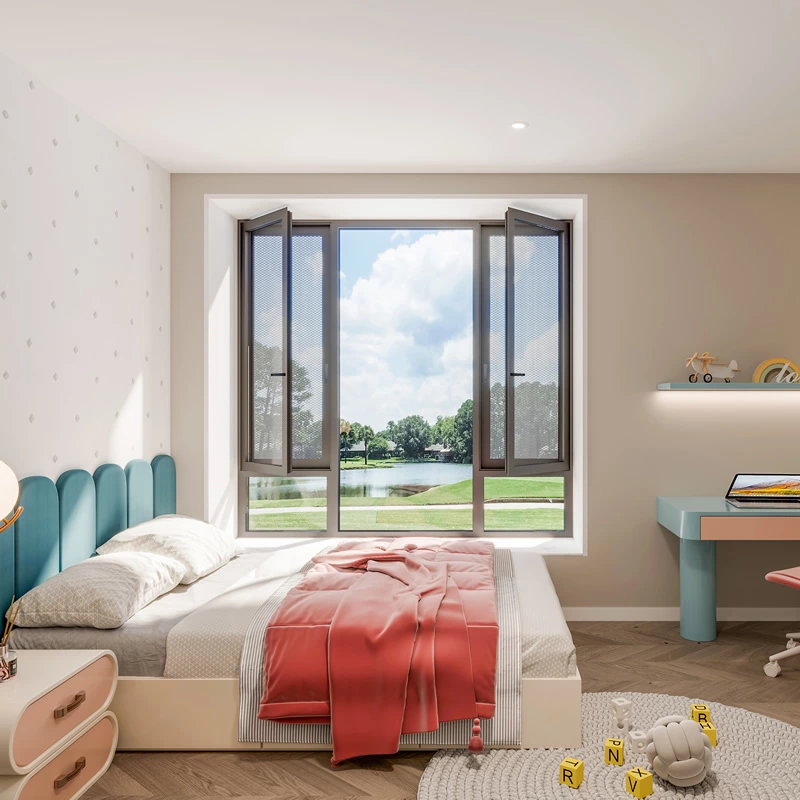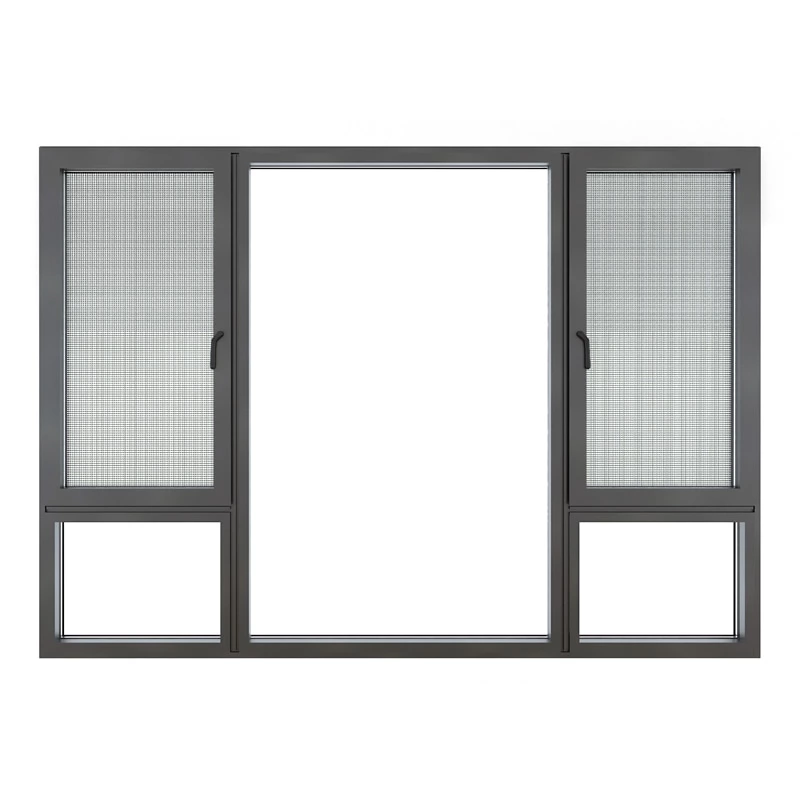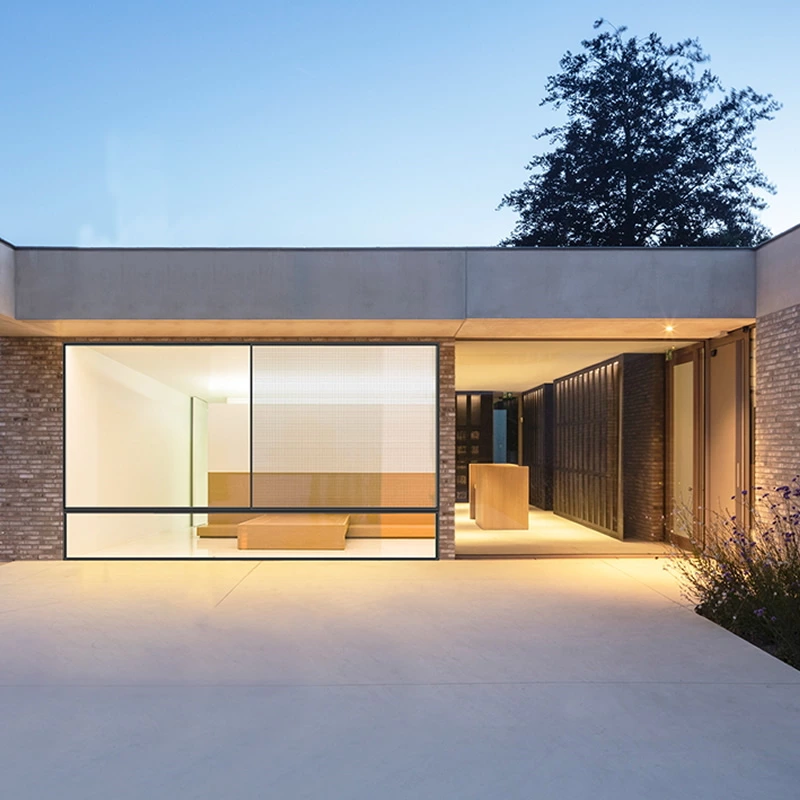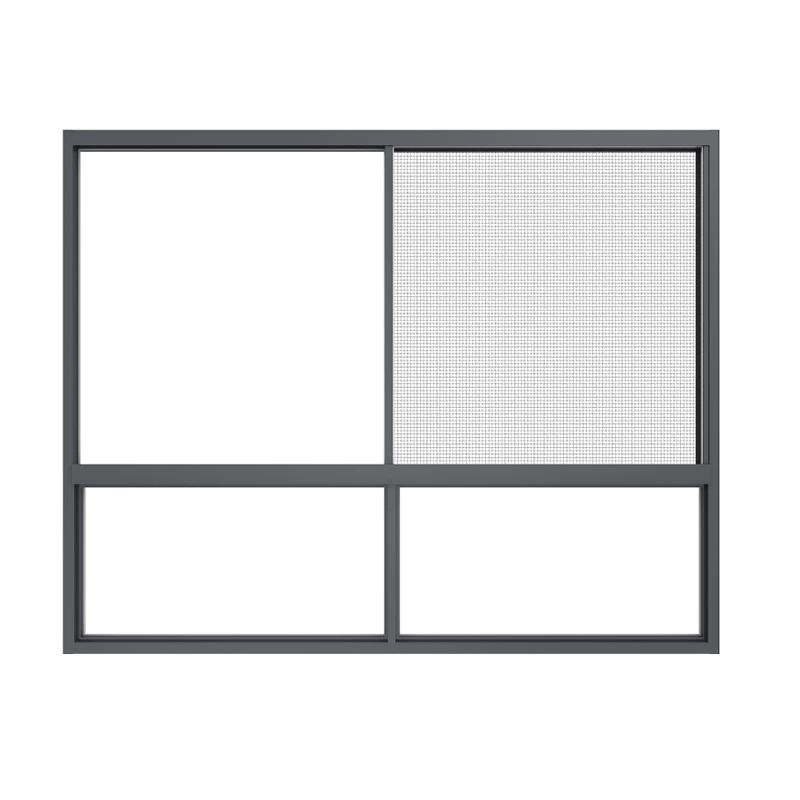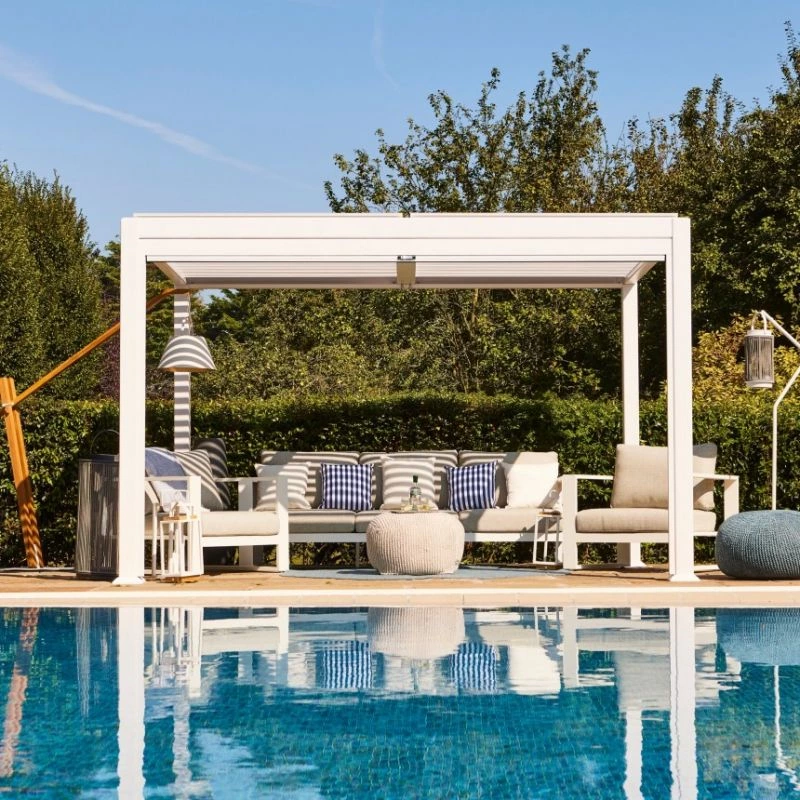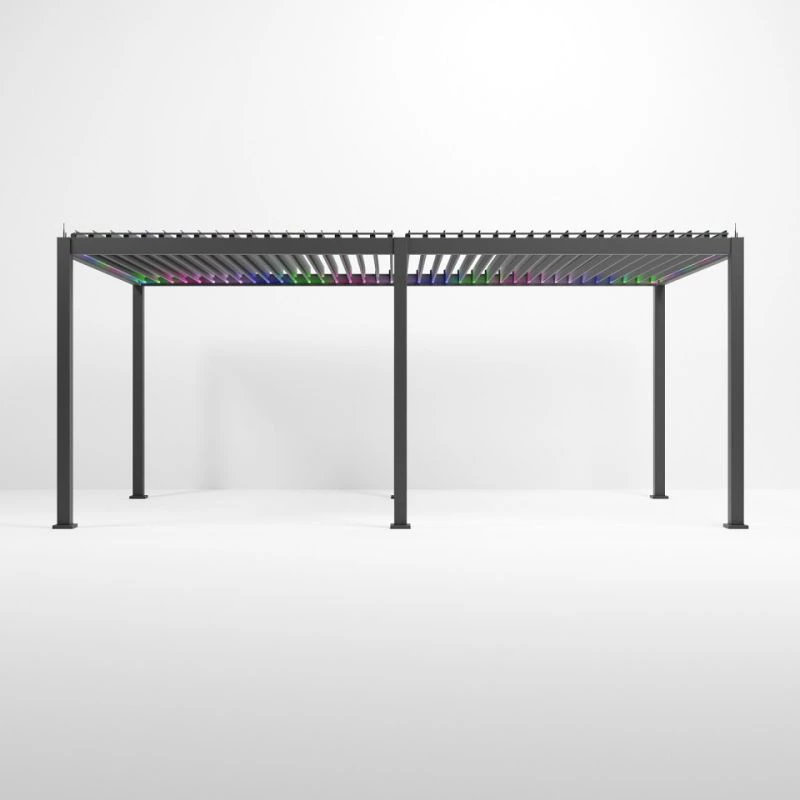When building or renovating a home, windows are often underestimated. Yet, a window is not just a passage for light—it regulates air, affects energy efficiency, ensures safety, and contributes significantly to a home’s aesthetic and resale value. Among the many window types available, double hung and single hung windows remain two of the most popular options, especially in North American residential design.
Though they may appear similar at first glance, these window types differ in structure, function, and overall user experience. This article offers a layered, in-depth comparison to help you make an informed decision based on your lifestyle, home design, and practical needs.
1. Understanding the Basics — Similar Looks, Different Mechanisms
(1)What is a Single Hung Window?
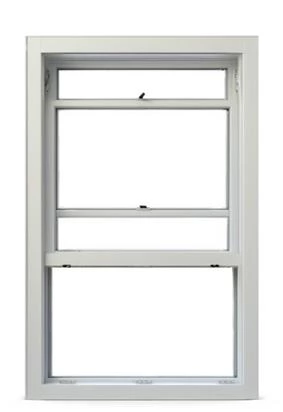
A single hung window has a fixed upper sash and a lower sash that slides vertically. It is a traditional design that features fewer moving parts, making it more affordable and slightly more energy-efficient by design.
(2)What is a Double Hung Window?
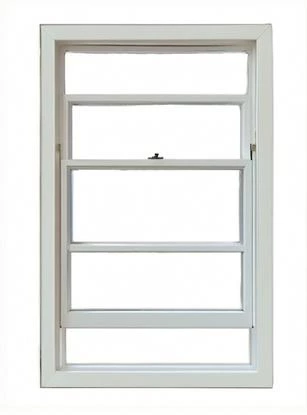
A double hung window allows both the upper and lower sashes to move. Most models are designed to tilt inward, which makes cleaning both sides of the glass easy—even from inside the home, a major advantage for multi-story houses.
Key Structural Comparison:
| Feature | Single Hung | Double Hung |
|---|---|---|
| Movable Panels | Lower sash only | Both upper and lower sashes |
| Cleaning Convenience | Outdoor only | Tilt-in, indoor cleaning |
| Complexity | Simpler mechanism | More components |
| Initial Cost | Lower | Slightly higher |
2.Functional Differences — Design Impacts Performance
(1)Ventilation:
-
Single Hung: Limited to bottom-up airflow, which may not provide efficient air circulation.
-
Double Hung: Allows for dual-direction airflow—cool air enters through the bottom while warm air escapes through the top. This natural convection significantly improves indoor air quality and comfort.
Science-backed Insight: According to the U.S. Department of Energy, windows designed for dual-direction ventilation can improve air exchange rates by over 30%, reducing the burden on HVAC systems during summer months.
(2)Energy Efficiency:More Than Just Glass
Single hung windows, with fewer operable parts, are theoretically more airtight and energy-efficient. However, modern double hung windows incorporate:
-
Advanced weather stripping
-
Multi-chamber insulation frames
-
Low-E (low emissivity) glass coatings
-
Triple-pane options for maximum insulation
Industry Benchmark: Most high-quality double hung windows meet ENERGY STAR standards, offering comparable or even superior thermal performance.
3. Daily Use Experience — The Reality of Living with Your Windows
(1)Cleaning: Convenience Varies by Design
-
Single Hung: Cleaning the exterior requires access from the outside, which can be difficult on upper floors.
-
Double Hung: Most models feature tilt-in sashes, allowing you to clean both sides safely from inside your home.
(2)Safety: Especially Important for Families with Children
-
Single hung windows, with a fixed upper sash, naturally prevent young children from accessing high openings.
-
Modern double hung designs often include child safety locks and sash limiters, combining flexibility with safety.
4.Style and Architectural Compatibility — Windows as Visual Language
Both window types suit traditional architectural styles such as:
-
Colonial
-
Georgian
-
Farmhouse
However, double hung windows offer greater flexibility in design elements like:
-
Grille patterns
-
Frame finishes
-
Color customization
This allows them to better support a wide range of aesthetic preferences and architectural expressions.
5.Budget vs Long-Term Value — The Cost-Efficiency Equation
(1)Initial Investment:
-
Single Hung: More budget-friendly, ideal for large-scale or cost-conscious projects.
-
Double Hung: Slightly more expensive, but often justified by long-term convenience and higher perceived value.
(2)Resale and ROI:
According to the 2024 Cost vs. Value Report by Remodeling Magazine:
-
Upgrading to high-performance double hung windows can increase home resale value by 3–5%.
-
ENERGY STAR–rated windows can reduce annual energy bills by 12–18%.
6.Application Scenarios — Matching Function to Lifestyle
| Living Situation | Recommended Window Type | Reason |
|---|---|---|
| High-rise residences | Double Hung | Safer, easier to clean |
| Basements or ground floors | Single Hung | Affordable, easy to operate |
| Families with children | Double Hung | Ventilation control + child safety |
| Rental property investments | Single Hung | Lower upfront costs |
| Luxury or custom homes | Double Hung (customizable) | Aesthetic and functional flexibility |
7.A Window Is a Lifestyle Choice
A window is not merely a structural component—it’s a medium through which light, air, comfort, and energy flow into your life. Choosing between double hung and single hung windows ultimately reflects your lifestyle philosophy.
Double hung windows offer versatility, ventilation control, and ease of maintenance—ideal for modern living.
Single hung windows emphasize simplicity, cost-efficiency, and functionality—perfect for straightforward applications.
In the end, it's not just about choosing a window. It’s about framing your everyday experience.
